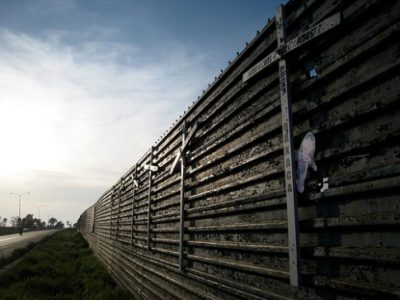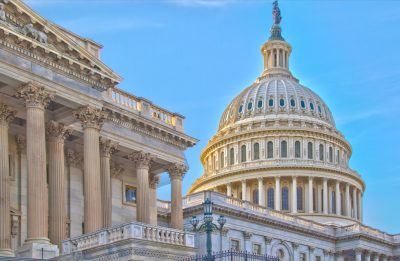Interior Enforcement

Nativist Group Discovers Unemployment is High
The Center for Immigration Studies (CIS) has made the rather un-astounding discovery that unemployment in the recession-plagued U.S. economy is high, especially among less-educated workers. In a new report, entitled A Huge Pool of Potential Workers, CIS dissects the latest Bureau of Labor Statistics numbers on unemployment and underemployment among the native-born, and notes that there are between seven and eight million unauthorized immigrants currently working in the United States. The report then makes the casual claim that “if the United States were to enforce immigration laws and encourage illegal immigrants to return to their home countries, we would seem to have an adequate supply of less-educated natives to replace these workers.” What the CIS report fails to mention is that the costly and destructive measures which have been proposed to “encourage” unauthorized workers to leave the country have yet to work and adversely affect native-born workers; that many unemployed natives would have to travel half way across the country to reach the low-wage jobs formerly held by unauthorized immigrants; that removing unauthorized workers from the country also means removing unauthorized consumers and the jobs they support through their purchasing power; and that none of this would aid the nation’s long-term economic recovery. Read More

Transforming the Role of Immigration Enforcement through Immigration Reform
For years, the U.S. government has tried and failed to curb undocumented immigration through enforcement-only tactics at the border and interior raids. The number of Border Patrol Agents has increased substantially over the past years—as have budgets and technological investment at the border—yet none of these increases have resulted in a significant decline in the undocumented population. In fact, we have the largest undocumented population in our nation’s history. Simply enforcing the woefully outdated and ineffectual immigration laws currently on the books is not working. Many immigration enforcement experts—including DHS Secretary Janet Napolitano—agree that the only way to solve our immigration enforcement problems is through comprehensive immigration reform. Read More

New Report Shines Light on the Economics of Illegal Immigration
Today the Migration Policy Institute (MPI) held an event aimed at dispelling some of the most common myths about illegal immigrants and the U.S. economy and making the case that enforcement-only policies are not cost effective. MPI also released The Economics and Policy of Illegal Immigration in the United States, written by Gordon Hanson, a professor of economics at UC-San Diego. Read More

Is Secure Communities Making our Communities Secure?
The Secure Communities Program—the latest partnership between Immigration and Customs Enforcement (ICE) and local jails to identify and deport “criminal aliens” —is over a year old and is growing by leaps and bounds. To date, there has been very little public information available about what Secure Communities is, how it works, and what the results have been. However, a new IPC report, The Secure Communities Program: Unanswered Questions and Continuing Concerns, released today highlights early evidence from Secure Communities—and experience with other ICE programs—that suggests this new program may not be living up to its name and may not be effectively making our communities more safe. Read More

CIS Report Attempts to Erase 100 Years of Research
A new report from the Center for Immigration Studies (CIS), Immigration and Crime: Assessing a Conflicted Issue, attempts to overturn a century’s worth of research which has demonstrated repeatedly that immigrants are less likely than the native-born to commit violent crimes or end up behind bars. The CIS report focuses much of its attention on questioning the accuracy of the 2000 Census data used in two particular studies, one from the Immigration Policy Center (IPC) and another from the Public Policy Institute of California (PPIC)—both of which dispel the myth of immigrant criminality. However, CIS ignores not only the many other sources of data in these two studies, but also the myriad studies from other researchers which have reached the same conclusion. Read More

Restrictionist “Experts” Get It Wrong Again with 287(g) Assessment
In October, the restrictionist group Center for Immigration Studies (CIS) released another report singing the praises of the 287(g) program. In The 287(g) Program: Protecting Home Towns and Homeland, the authors ignore the evidence and arguments put forward by law enforcement experts—such as the Police Foundation, the Major Cities Chiefs Association, and the International Association of Chiefs of Police—and dismisses them as “national advocacy organizations.” In doing so, CIS puts itself forward as apparent “law enforcement experts,” adding to their impressive resume that includes biblical scholar and environmental expert. Read More

Our Immigration System Needs Solutions, Not Villains
This week, American Apparel is slated to lay off 1,800 workers from its clothing factory in Los Angeles. The impending layoffs are the result of a federal investigation which turned up irregularities in the documents workers presented when first hired by the company. The investigation itself represents a new direction in Department of Homeland Security (DHS) immigration enforcement, one which focuses on audits of employment records rather than mass roundups and S.W.A.T.-team raids—raids which inflicted abuse and trauma on immigrants, their families and our communities. Read More

CIS’s ID Theft Argument Makes Strong Case for Comprehensive Immigration Reform
Once again, opponents of immigration reform have actually made a strong case for comprehensive immigration reform. At an event this morning sponsored by the Center for Immigration Studies (CIS), various speakers argued that ID theft by unauthorized immigrants is a problem that needs to be solved. While they seemed unwilling to offer any real solutions, the issues raised in the discussion clearly point toward the need for comprehensive immigration reform—including a legalization program for current undocumented immigrants—which would be a large and important step toward curbing the use of fraudulent documents by unauthorized immigrants. Read More

Does ICE’s Criminal Alien Program (CAP) Target Serious Criminals?
Over the past several years, ICE has increased the number of partnerships with state and local police. There has also been a new emphasis on identifying “criminal aliens” who are detained in jails and prisons, and deporting them once they finish their sentences. However, many concerns have been raised about how these programs are being implemented. In fact, various reports have shown that while ICE claims they are targeting serious criminals, the majority of persons ICE identifies and deports do not actually have any serious criminal records. Read More
Make a contribution
Make a direct impact on the lives of immigrants.

